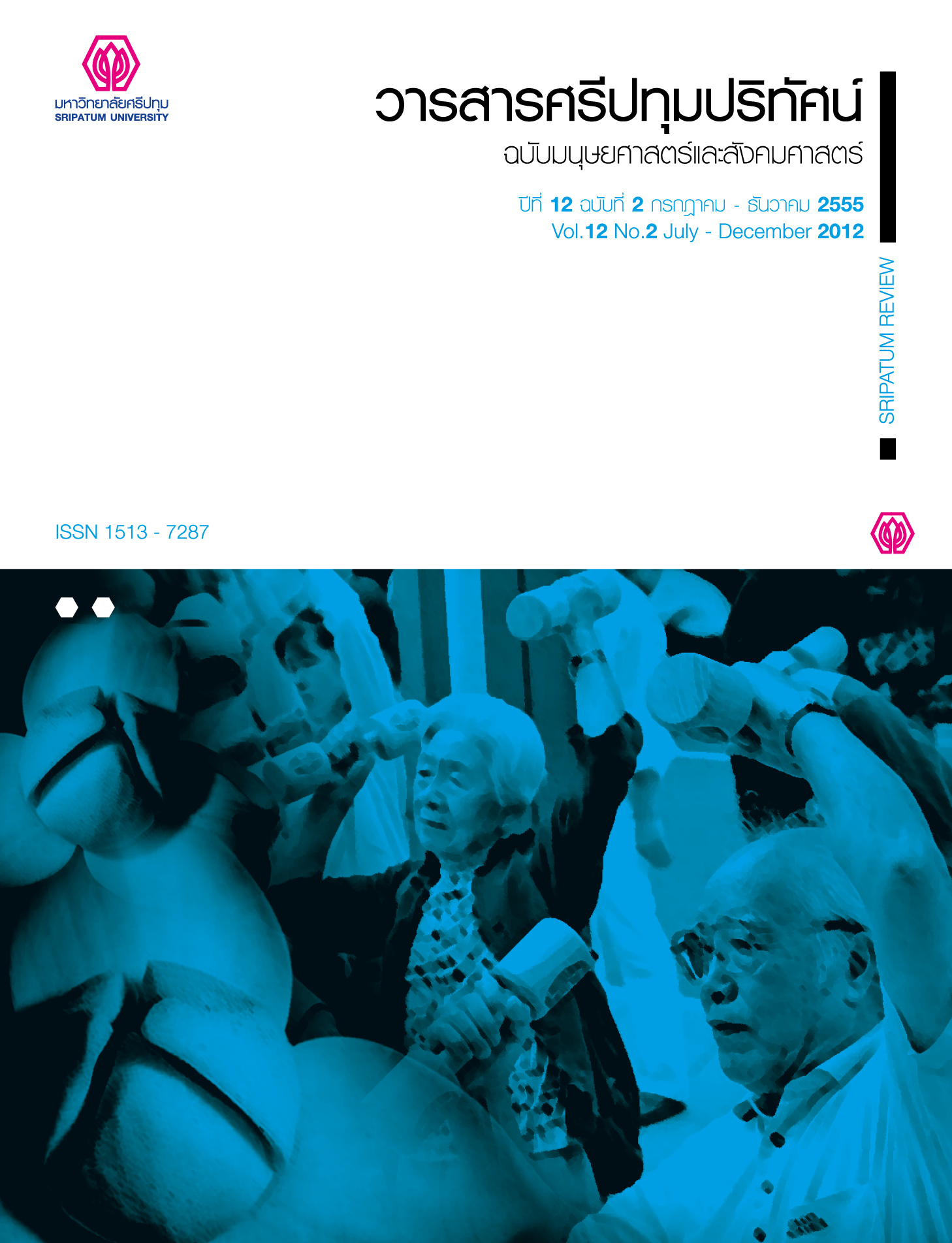THE ENTERING OF LIFELONG LEARNING OF THE ELDERLY PEOPLE IN THE NORTHEASTERN THAILAND
Main Article Content
Abstract
The study on the Entering of Lifelong Learning of the Elderly People in the Northeastern Thailand is aimed at answering 3 main questions. Firstly, it examines the factors contributing to the increasing number of the elderly people entering into lifelong learning through the informal and non-formal education in the Northeastern Thailand. Secondly, it explores the roles of governmental sector and the local community in supporting the elders to join lifelong learning. The final objective is to find the extent to which lifelong learning has contributed to the increasing social, economic, and individual security, known as human security, of the elderly people in the Northeastern area. This study employs a mixed quantitative and qualitative methodology using questionnaire, focus group and in-depth interview techniques.
The study demonstrates that there are 4 main factors which are considered integral to the increasing number of the elderly people entering into lifelong learning in the Northeast of Thailand, especially through the informal and non-formal education. These factors are personal experiences, self-concept, readiness and orientation to learn. The role of governmental sector such as those working in the local and the support from the community are supplementary factors which help promote the interest of the elders to join lifelong learning. In addition, the study shows that lifelong learning through the informal and non-formal education has increased the elder’s economic, social and personal security.
Article Details
1. กองบรรณาธิการสงวนสิทธิ์ในการพิจารณาและตัดสินการตีพิมพ์บทความในวารสาร
2. บทความทุกเรื่องจะได้รับการตรวจสอบทางวิชาการโดยผู้ทรงคุณวุฒิ แต่ข้อความและเนื้อหาในบทความที่ตีพิมพ์เป็นความรับผิดชอบของผู้เขียนแต่เพียงผู้เดียว มิใช่ความคิดเห็นและความรับผิดชอบของมหาวิทยาลัยศรีปทุม
3. การคัดลอกอ้างอิงต้องดำเนินการตามการปฏิบัติในหมู่นักวิชาการโดยทั่วไป และสอดคล้องกับกฎหมายที่เกี่ยวข้อง
References
ปัทมา ว่าพัฒนวงศ์และปราโมทย์ ประสาทกุล. (มปป.). “ประชากรไทยในอนาคต.” (ออนไลน์)
สมยศ ทุ่งหว้า. 2543. ระบบสังคมเกษตร: ข้อเสนอเชิงแนวคิดที่ได้จากการวิจัยในภาคใต้. รายงานการสัมมนาระบบเกษตรแห่งชาติ ครั้งที่ 1. พฤศจิกายน 2543.
สุริชัย หวันแก้ว. 2552. ความมั่นคงของมนุษย์ในสังคมไร้พรมแดน. กรุงเทพฯ : ศูนย์ศึกษาและพัฒนาสังคม คณะรัฐศาสตร์ จุฬาลงกรณ์มหาวิทยาลัย.
อาชัญญา รัตนอุบล และคณะ. 2552. “ปัญหา ความต้องการ และรูปแบบการจัดกิจกรรมการศึกษานอกระบบและการศึกษาตามอัธยาศัย เพื่อส่งเสริมการเรียนรู้ด้านการเตรียม ความพร้อมเมื่อเข้าสู่วัยผู้สูงอายุของผู้ใหญ่วัยแรงงาน.” คณะครุศาสตร์ จุฬาลงกรณ์มหาวิทยาลัย.
Commission on Human Security. 2003. Human Security Now. New York: United Nations.
European Commission. 2001. Making a European Area of Lifelong Learning a Reality. Brussels: European Commission.
Sen, Amartya. 2002. “Basic Education and Human Security.” [Online].
Sen, Amartya. 2011. “Quality of Life: India vs. China.” The New York Review of Books. [Online] .


